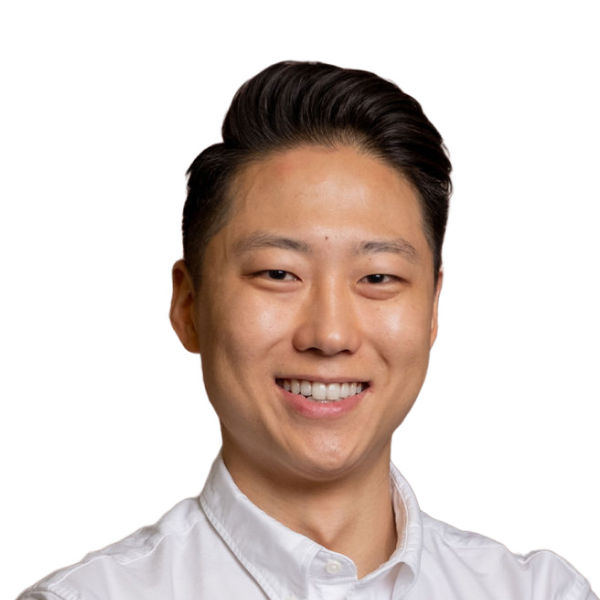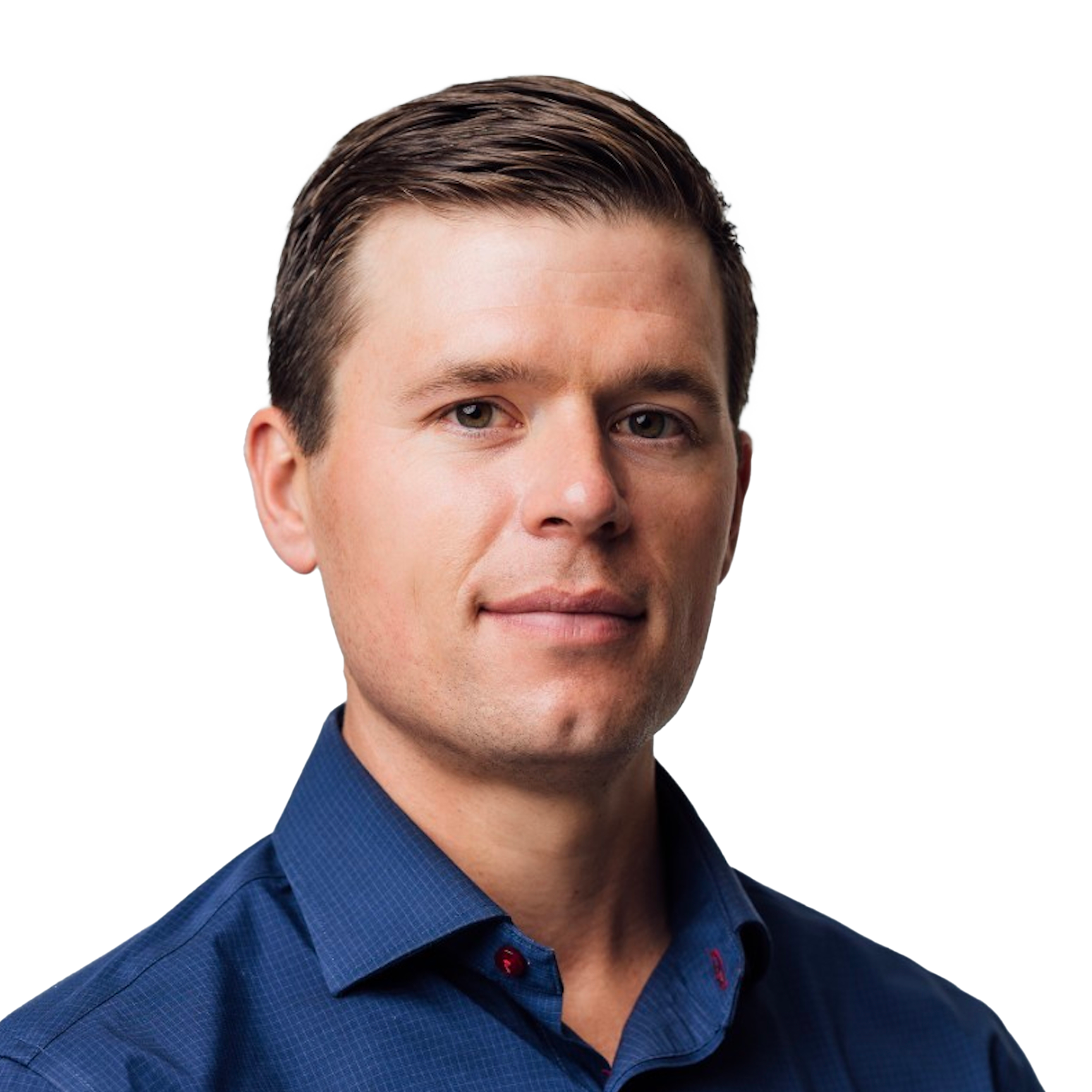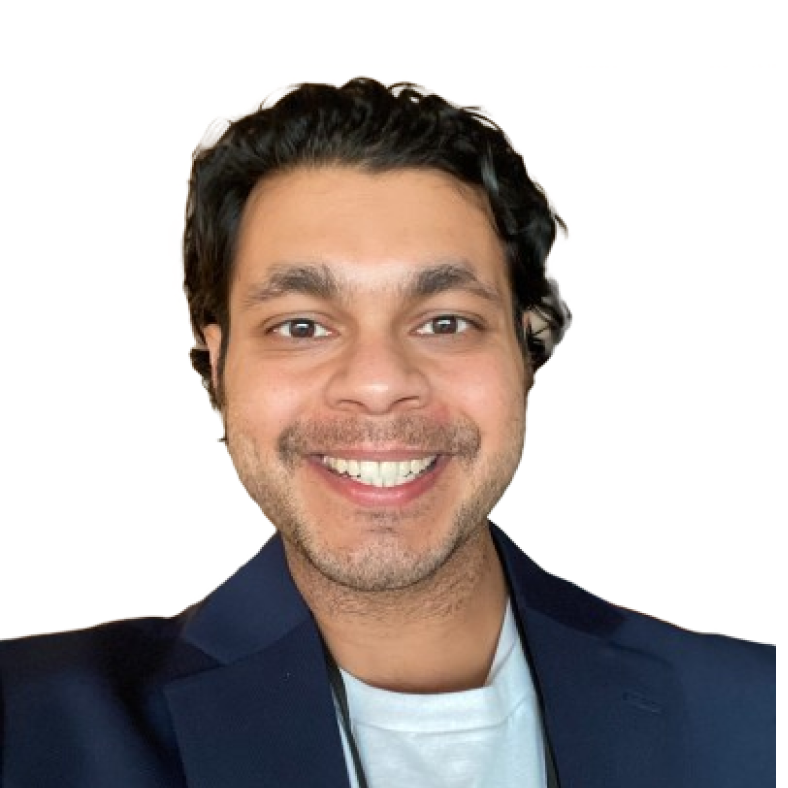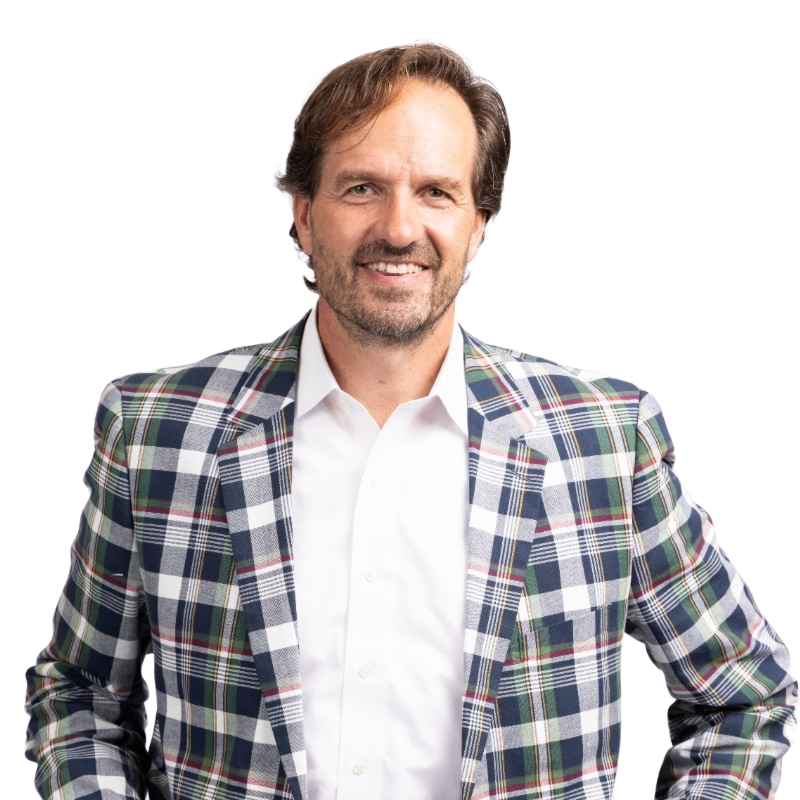
BACK TO PODCASTS
Jin Chang
CEO
|
FieldGuide
Episode #
12
Tracy sits down with Jin Chang, CEO and co-founder of Fieldguide. They discuss Jin’s background, including his upbringing as an immigrant from South Korea and how his parents’ struggles influenced his values and work ethic. Jin shares his journey from working at Ernst & Young and founding a cryptocurrency company to co-founding FieldGuide in 2020.Fieldguide, an AI platform for CPA firms, automates tedious tasks in accounting and auditing, helping alleviate burnout and improve efficiency. Jin explains the significant talent shortage in the CPA industry and how Fieldguide addresses this by automating manual processes, such as auditing financial statements. They also discuss Fieldguide’s recent Series B funding, which will be used to enhance AI capabilities, expand into new practice areas, and increase marketing efforts. Jin emphasizes the importance of understanding customer workflows and building products that genuinely meet their needs, a lesson he learned from his previous experience at Atrium.

Tracy sits down with Jin Chang, CEO and co-founder of Fieldguide. They discuss Jin’s background, including his upbringing as an immigrant from South Korea and how his parents’ struggles influenced his values and work ethic. Jin shares his journey from working at Ernst & Young and founding a cryptocurrency company to co-founding FieldGuide in 2020.
Fieldguide, an AI platform for CPA firms, automates tedious tasks in accounting and auditing, helping alleviate burnout and improve efficiency. Jin explains the significant talent shortage in the CPA industry and how Fieldguide addresses this by automating manual processes, such as auditing financial statements.
They also discuss Fieldguide’s recent Series B funding, which will be used to enhance AI capabilities, expand into new practice areas, and increase marketing efforts. Jin emphasizes the importance of understanding customer workflows and building products that genuinely meet their needs, a lesson he learned from his previous experience at Atrium.
Podcast Transcript
Tracy: Hi, welcome to Path to Growth. I'm Tracy Young, co founder and CEO of TigerEye. Today, we are joined by Jin Chang, CEO and co founder at Fieldguide, to discuss all things growth. Jin was previously chief of staff at Atrium and had founded a cryptocurrency API company while in grad school at UC Berkeley. He also spent five years at Ernst Young in audit and advisory and is now Building the product you wish you could have used.
Jin welcome.
Jin Chang: Thanks so much for having me and Fieldguide
Tracy: so tell me about growing up. Where were you raised? Tell me about mom and dad.
Jin Chang: Love that question. Super important to, you know, understand the stories of, of folks that we always partner with. And for myself and my upbringing, kind of that classic immigrant story born in South Korea, parents you know, brought or immigrated to the States with me in their arms, three month old baby.
And really it was a big influence in how I grew up. My parents came to the States to really give me a better shot and my brother a better shot at life. Left everything behind in Korea so that we could pursue Our American dreams ourselves. So, you know, a lot of what I grew up seeing was just making things work against all odds, my parents didn't really have a ton of resources and just wanted to make sure that I had every opportunity to do What I dreamt of.
So you know, grew up seeing some struggles that my parents went through. You know, fortunately my parents have really, I think succeeded in a lot of ways, but in the early days, I saw my dad doing arguably terrible businesses like selling watches out of his trunk, pumping gas at the gas station for two bucks an hour, but again, just making things work.
So as I grew up, I lived with the values of. Just doing the right thing and doing things for the family. And that extends into how I operate in my day to day today too. That grit and that passion for doing something special. Definitely. You know, it's how we operate a Fieldguide today.
Tracy: Oh, thanks so much for sharing that story.
It's so obvious to me how proud and grateful you are to your parents. I mean, for me too, the most important decision of my life, surprisingly wasn't made by me. It was made by my parents when they decided to leave Vietnam on a boat away from, you know, violence. And they just wanted all of us. I wasn't born yet, but they wanted all their children to have a better life than they did.
And, you know, just like your parents. They worked terrible jobs and they never complained and they just did it. Because they really felt like they had no choice. Of course they were going to do it. They didn't make money, put food on the table. So thank you so much for sharing that story. It obviously resonates with me.
You decided to found Fieldguide in 2020. What inspired you to start the startup?
Jin Chang: I always like to introduce Fuel Guide as a company I never imagined starting. And that's because Fuel Guide builds a vertical AI platform for CPA firms. And while I was a CPA at EY for five years and I loved the people I worked with and the folks I built great solutions with for our clients.
I didn't quite enjoy the manual parts of the job. In fact, I tried to quit the CP profession three times. The first couple of times the practice leaders were like, Hey, Jen, shut the door. Let's talk about this. What do you want to do at EY? The third time I basically got those partners to write my recommendation letters to go to grad school.
So once I got accepted to UC Berkeley they kind of had to let me go. And when I reflect back at the time, my kind of foray into the world of startups happened with that. entry into grad school. That was me pivoting my career from the CPA profession, and I never thought I'd be back. So if I tried this hard to leave this industry, and now I find myself back in the profession, obviously in a different capacity, now I feel like I was Destined and perhaps born to innovate for this space.
And, you know, that's very much the big driver behind what we do with Fieldguide. Fieldguide is the AI platform that I always wish I had. Automating the parts of the job that I didn't enjoy. And it turns out when you look at the talent trends in the industry, we are solving a problem that hundreds of thousands, millions of people, not just in the U.
S., but globally, experience every day too. So, yeah, we're serving an industry that, It really needs more capacity and we're doing it by bringing AI and technology leverage to the people.
Tracy: In a recent interview, you described a downward spiral in accounting due to long hours and burnout leading to CPAs leaving the profession completely.
So walk us through like, you know, you've actually done the job and now you're, you've built a platform that helps them eliminate a lot of the work that makes them burnt out in the first place, but walk us through a bad day of a CPA. And then how Fieldguide helps counteract that bad day for them.
Jin Chang: Sure, sure.
Well, let's start with that downward spiral trend. And then I'll get into the nitty gritty of what I did every day. When you look at the talent supply, The simple math here is it's not keeping up with the growth and demand for services. And CPA services is one of those key markets that underpins the economy and, and commerce everything that businesses rely on.
In terms of information between businesses as well as consumers. We are when we're investing in stocks and reading 10 K reports, those are all audited by CPA firms. So, you know, while not everyone knows what CPAs do. chances are we are consumers of that information that the CPAs really enable.
And while there's enormous growth in the industry, the talent supply is not just not keeping up, it's also starting to shrink. And that's at every part of the funnel. When you look at the top of funnel, the number of accounting majors entering the profession, coming out of school, Shrinking the number of CPA exams being taken annually shrinking the number of people leaving the profession with five to seven years of experience like myself.
going up. I think the past couple years saw 300, 000 people leave the profession. So clearly, I wasn't the only one in pain. And then on top of that, when you look at the senior practitioners who lead a lot of these firms, there's this big upcoming wave of retirees too. So no matter where you look at the talent funnel, you know, the future isn't looking that great.
And at the time when I was doing the work at EY, It wasn't quite clear, but now when I reflect it's pretty clear why folks are leaving or not entering the profession. And that's because while it does present a really great career lots of CPAs you know, enter the profession with dreams of being a CFO.
The payoff isn't quite. as strong as some other professions out there. It's a great skill set to have as a CPA, as an accountant. It really is a language of business and I'm sure, you know, even in your, you know, CEO revenue leadership role, your accounting knowledge is very helpful. The day to day work you know, when I walked into work every day, I would be, it felt like I was walking into a cluttered inbox of hundreds of things to do across all my clients.
And, you know, that itself is probably not. A bad thing, but what it felt like was, as I was kind of trying to get to inbox zero figuratively getting through my work, a lot of the work entailed manual ticking and tying, manual testing and auditing of screenshots, PDF files, and so on. And at the time, I felt like, you know, these were things that machines could do a lot better, faster, and more accurately.
And, It was a type of work that sometimes, you know, it made me question why I got a four year degree. So with FuelGuide, the platform, we've designed it in a way where it feels familiar to CPAs. The workflow feels familiar, but we're automating the stuff that no one wants to do.
Tracy: Which is an incredible use of AI.
It's why I'm so excited about the future. What's coming our way. Can you give us some examples? I mean, other than, you know, I think you touched on it, like, just like visually auditing a PDF to what was written in a cell, like how, how else does Fieldguide help with you know, address the, the, the, the stuff that accountants and auditors and, you know, advisory folks don't want to do.
Jin Chang: The thing about CPA workflows is they are quite diverse and quite circular. But if I were to simplify what the average. An audit workflow might look like, you know, the simple purpose of auditing is to provide assurance around some information or data. So in the context of a financial statement audit, when we read a 10 K report for a public company.
We as consumers want to be able to depend on those numbers. So what an auditor does or an audit team does is they'll basically break down the financial statements and each line item, each account, and figure out how to best test those balances or numbers so that other consumers of that information can rely on it.
So let's say we are testing something like a cash balance. The way auditors might test a certain revenue line item is by looking at all the transactions that make up the total. So let's say you have a hundred million dollars in revenue. Auditors will take the entire population of all the transactions that make up that total and make a sample selection, you know, depending on, you know, how material they are or how many transactions you have.
Let's just say The auditor is selecting 25 deals out of a thousand deals closed. They'll then ask their clients for evidence to substantiate those numbers. They might ask for a contract and in that contract, they will look for things like deal size number. How much revenue they actually generated, what date that contract was signed so that they can do proper revenue recognition, you know, typically those pieces of evidence come in the form of PDF files or scanned contracts as a human, you will make those 25 selections manually out of a thousand, you will make those requests manually.
And then when the PDF. Pieces of evidence come in. The auditors will check for all the numbers that substantiate the total number and document each PDF, highlighting the numbers, the fields, the dates, the names, and so on. Basically what our AI is doing is stitching together that entire workflow and auto testing for them.
So in designing. the audit test steps. Instead of a human saying, we're going to select 25 samples and ask for the contracts, our AI will draft those procedures for the auditors. And then from there, our AI will draft the requests for the evidence to the clients. And when the clients upload pieces of evidence, our AI will pre scan all the PDF files for the auditors.
So that The quality is good before it gets to the auditors. And then when the auditors are testing, we will highlight and document all the pieces of data that they are supposed to test. You know, what typically might take dozens of hours to test that one revenue line item we could probably do in under a day.
Tracy: Really impressive. So congratulations, you guys just closed a sizable Series B, and I know that there's a lot of interest in the venture capital community. Can you share with us how you plan to allocate this new funding to further Fieldguide's mission?
Jin Chang: First and foremost, we felt very fortunate about Being able to raise from probably one of the best SaaS investors out there.
And the one, one of the funds that some will say wrote the book on vertical SaaS. So we're very excited to be partnering with Bessemer Venture Partners with an incredible board member and team that's supporting us there. You know, we talk a lot about where to invest this capital. I'm sure, you know, Tracy, you know, you've been there too.
When you raise a fresh round of funding, where are we going to invest that capital? What it always comes down to for me is. We should be investing in the best possible people to really execute on the vision and that applies across every function. And in terms of those functions or milestones, we want to double down in our R& D and building specific AI.
Use cases for specific types of practices. So whether it's a financial audit or an I. T. Cyber security audit or other type of technology transformation or tax practice, we want to build basically a I for each of those use cases. And go deeper into each practice area in terms of A. I. We have several use cases or formats in Fieldguide.
One is around A. I. Automation workflows. So basically pre canned templates to execute certain tasks. We also have a copilot chat interface and where we're headed to more is what Silicon Valley is calling A. I. Agents. Basically, having AI bots that will take over certain roles, whether it is a junior auditor on the team, or even a senior auditor who is reviewing the work of a junior auditor.
And where I think this gets really exciting is, you know, in the world of agentic AI workflows, the neat thing about AI agents is they should be able to speak to each other, and build on the work of another agent. So you can imagine if we have an AI agent for a junior staff's work, they will execute the auditing or testing for what that project needs to do.
And then if we have an AI agent as a, as a reviewer, as a manager of the engagement they will Review the work of that first agent. Now we have Fieldguide, have a human in the loop philosophy. We are kind of enabling and empowering the CPA practitioners. So we do empower the CPAs to still make those critical decisions along the way, but we want to basically package everything up in a nice bow so that the humans can just review the work along the way.
So that's the big bucket, you know, really doubling down on R and D. And then of course we are in that early growth stage as a company, of course, investing more in marketing and sales, and also the servicing of our sales to customer support, customer success. And, you know, I think now is the time for fuel guy to really start to promote our brand more in the market.
The first few years in our journey, we were probably by design, pretty stealthy. And that's because we, we didn't want other Silicon Valley startup founders to see the opportunity that we saw. But now that we feel extremely confident in our product, you know, we feel like because we have a differentiated product, that's going to take anyone a long time to try to copy.
You know, We feel good about really building our brand outside more.
Tracy: Yeah. I mean, it seems like you're going to be using your round for your strategic advantage, right? As you said, you you're now out of stealth and there's been so much and congratulations on the recent press that you guys have gotten.
I mean, you know, there are probably lots of targets on you guys right now from even competitors that you don't know of, right? Startups are might be in stealth. And so I'm very excited that you guys are going to be Building out even more products for the different disciplines and departments within your industry.
Can you share with us the marketing strategies? That have been most effective for Fieldguide and also the, I guess the pros and cons of marketing to the industry that you serve.
Jin Chang: Yeah. You know, I'd be curious to hear what you saw at plan grid too. Obviously another great vertical SAS story and outcome.
What we see is events being a really good driver of pipeline and also brand building. But really what we're seeing is our best pipeline source comes from these events. And these aren't just kind of the national conferences that every CPA firm goes to, but they're also the regional and local conferences and events too.
So we're tripling down, quadrupling down on events this year. And that's where it's an old school industry, very relationship driven, and where we can continue to build on the relationships that we see or that we You know, have been seeding for several years and can now build on. Now we are also getting more strategic with each account too.
So kind of the trendy word might be ABM. Really getting strategic about every account and understanding where their needs are and where their potential is. Where the best kind of value and impact can be delivered and building relationships with those leaders at these firms. We are starting to build more of our brand in the market too.
So pushing out into more digital channels to build. You know, that big company brand, brand that looks bigger than her actual company. And then also writing and distributing more thought leadership. You know, this is an industry where, while there's more and more demand for their services, there's just not enough people to keep up with the growth.
So every CPA firm leader is a leader. you know, thinking about how to best get more out of their people. And for the first time, I think in decades, CPA firms are really leaning into technology as that growth lever, because they're just running out of people in the world, even when they're getting there.
Outsourcing work to the usual BPO suspects internationally, even that isn't enough people to feel the growth. So that's where our AI thought leadership will come into play. We're distributing more and more thought leadership and content around how the most ambitious CPA firms out there are leaning into AI to continue feeling their growth.
Tracy: You talked about how your investment, your recent investment is really going to hire the best people. Walk me through the types of people you look for in, you know, bringing onto your team. What, like what matters to you?
Jin Chang: You know, of course there are nuances by every role, but if I were to simplify the combination that we're looking for, we want to marry the best of Silicon Valley technical talent and domain expertise.
And actually that's very similar to how you know, my co founder Chris and I started the company. If you think about it, Chris Amansky, my amazing co founder. amazing technical product visionary love working with him. He brings kind of that Silicon Valley product expertise. And then I bring more of the domain expertise from the profession after practicing at EY for five years.
You know, you'd be surprised even when I was at EY, I would try to automate my work with. And so on. I'm not
Tracy: surprised.
Jin Chang: Yeah. And, and, you know, fortunately Chris and I, when we were at Aetrium, you know, building for AI for Lawyers, we got to work on some pretty cool products together building automation tools for lawyers.
And through that experience we were able to. realize that, you know, we have this really great working chemistry and that's how we started the company. You know, I will say, you know, that's how we're basically building our teams. For example, you know, we are, you know, right now hiring a solutions engineer, a pre sale solutions engineer.
And as we get into more technical financial audits, we are looking for someone who was an ex financial auditor, one of these large CPA firms. Who then went to a world class Silicon Valley startup to be a solutions engineer. That's the type of profile that, you know, we really try to target.
Tracy: It's so interesting because even, even briefly hearing about Atrium again.
It sounds like such a good idea. And you got front seat view to see, you know, the excitement, but also to see ultimately the closure of the company. What lessons learned are you taking from Atrium? Because in a lot of ways, there's a lot of similarities between field, just, just, you know, obviously very different companies and I'm very excited about how far you've taken the company and excited for where you will take it.
But you know, AI for lawyers, AI for auditors, right? Just, just in the tagline, it's very similar. Maybe my question is like, can you just like briefly summarize what didn't work and the lessons learned you're going to, you're taking to a Fieldguide?
Jin Chang: Honestly, we get asked this all the time. So, I'm happy, happy to chat about this.
And, you know, Chris and I always feel very fortunate about that experience working with world class talent, working for someone like Justin Kahn, who in a lot of ways is like our Our big brother in a lot of ways, seeing and building a company with that level of talent across every department was a true blessing.
And also building professional services workflows for lawyers back then proved to be a really great foundational building block of what we're doing today at Fieldguide. It's funny when we went into Y Combinator the summer after Atrium shut down, Michael Seibel, who was on the board of Atrium told us, you guys are going to come in and do a talk with the batch.
Of what went wrong with Atrium. And you know, we had a list of, I think, eight lessons, you know, some of the core lessons that Chris and I always. you know, preach and talk about at Fieldguide. People and culture are the most important thing. And with Atrium, because we grew so quickly, going from like zero to 200 people in two years, we didn't have a lot of time to think about culture and be intentional about it.
You know, I don't want to say it was a disaster of a culture. It just, we couldn't be intentional about it. So in hindsight, that was probably the biggest lesson for us with Fieldguide. We were maniacal about nailing the culture for the first 50 people. And what we knew was, if we nail that, the first 50 people are the ones that really carry that culture for the next 50, and then the next 100, and then the next 200, right?
So, you know, at that point, it's basically out of the hands of the founders too. Of course, we can continue to nurture it too, but we were maniacal about the first 50. The other thing was scaling too quickly before we're confident about product market fit. One could argue that Atrium had really great product market fit.
We got to almost 20 million in revenue in two years, nothing to be ashamed of. But because we were We were so aggressive about growing in different legal use cases or legal services. We weren't very focused on the legal workflows, and we didn't really sequence them very well. In fact, we probably, I think we had something like seven or eight business units that our R& D team was building AI and machine learning for.
And for a startup to not have that focus in one, you know, one repeatable type of workflow and build many solutions across. too many efforts. What we saw was a lot of product built, but a lot of refinement needing to be built too. And what happened was because we had so much pressure to grow, as you recall, I think we raised like 75 million within the span of a year or something like that.
The expectation was for us to grow really aggressively. What it felt like was we scaled seven products that in totality became close to 20 million in revenue. But individually, probably only had two or 3 million of ARR. I don't think we could say that we got product market fit, like solid product market fit in any one of those.
And what we started seeing was our customer churn being too high. At that scale of close to 20 million in ARR, seeing that leaky bucket, basically our sales team was just replenishing that leaky bucket. Every day. So our a RR kind of flatlined.
Tracy: Yeah. Okay. So you're gonna make sure that everything you build is gonna be awesome and really good.
And I, I think you, you talked about the improvements that needed to be made that wasn't being made at Atrium. Mm-Hmm. because you did spread themselves too thin. And I'm assuming you're gonna make sure that doesn't happen at field. Good as you guys. invest in new profiles and new products. Yeah.
Jin Chang: Yeah. You know, it's definitely a fine balance because we are pushing into more use cases too at Fieldguide, but what we're confident in is our core platform having been built over, you know, more than four years now, and then reconfiguring and templatizing our core platform across more use cases.
Tracy: I see.
Jin Chang: Yeah, at Atrium, it felt like we were building entirely different products for each use case.
Tracy: Whereas when you improve your core platform, it improves it for all of the profiles of users and like,
Jin Chang: Exactly. You know, we've built, you know, AI components that are highly flexible and configurable for each use case.
And when we make an improvement or launch a new AI component, we make sure that it's going to work for all users. All the use cases or, you know, many of them, and actually, you know, one thing that we didn't see, or we tried to fix that atrium was a maturity framework across all the use cases, we tried to apply a maturity framework at atrium, kind of after the fact, but with fuel guide, we were intentional about that maturity framework from the earlier days, and we established, you know, maybe not the most sophisticated framework, but, you know, We had at least some framework to measure our maturity across every use case.
And that maturity framework is basically what we are copying and pasting into other practices. Making sure every practice that we expand into has deep capabilities across. different parts of that framework, so product capabilities, audit programs that the, that the CPAs will use, templatized AI actions and workflows that each practice area tends to use.
Things of that nature, you know, we're just more maniacal about having a great maturity framework.
Tracy: What other advice would you give entrepreneurs looking to leverage AI and, you know, build cool AI stuff in traditional industries?
Jin Chang: There's a ton of hype around AI today. And with that comes many, many startups that are building on this amazing world of foundation models.
What we are seeing is a lot of these AI startups are what we would call thin wrapper AI products. These are the products that, you know, if you use chat GPT, you could probably build and design a prototype in a weekend. I do appreciate that too. And as you know, that's how startups and their early products are built.
But. For founders that are building for these legacy industries, what I would recommend is really understanding the workflows and their day to day lives as the foundation for what they do, and not thinking too much about AI use cases to start. When you really understand their day to day lives, the AI use cases become much more clear.
You know, we had some benefit in the early days where I came from the industry and Chris was an amazing product partner with me to build our early workflow platform in AI. What we never lost sight of was always listening to the customer. And while I would love to be able to say that every product idea came from my experience, that is very far from the truth.
Actually, only the early product, I would say, came from my experience and what I see a lot in our product today, I really credit to our team, product managers and engineers and our designers as well as our customer success and support reps. We're always listening for what our customers want and need, and we're very responsive to that.
Tracy: Going back to the roots of what makes every great company great, that they've, they've Actually built something that people really want and are willing to pay money for and for you it's you know Eliminates a little bit of the bullshits in their lives So congratulations on all your hard work. Of course the reward for hard work is more hard work but i'm so excited for the future of Fieldguide and everything you guys are going to build and Thank you so much for joining us today.
Jin Chang: Thanks so much for believing in Fieldguide and our team and, and our vision. And yeah, we're just so excited to be, continue to build amazing products for them and you know, grow our business along the way.

.png)













